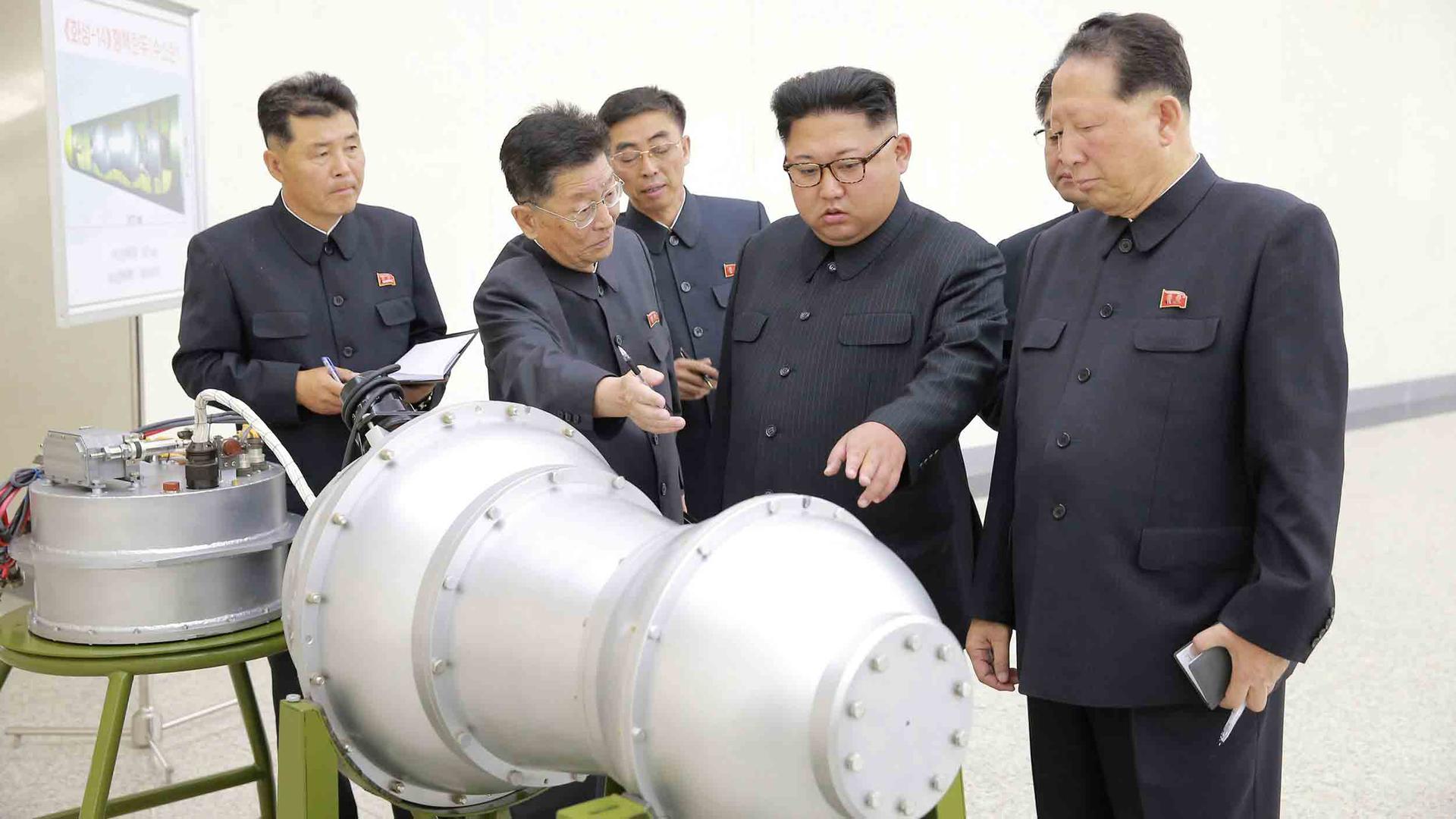Expert: ‘Cautiously optimistic’ about possible peace deal with North Korea
North Korean leader Kim Jong-un looks at equipment as part of North Korea’s nuclear weapons program in this undated photo released by North Korea’s Korean Central News Agency.
The directors of the CIA, FBI, National Security Agency and other intelligence agencies testified Tuesday before the Senate Intelligence Committee about the greatest threats facing the United States. China and Russia pose the biggest risks to the United States, and are more aligned than they have been in decades as they target the 2020 presidential election and American institutions to expand their global reach, officials told senators on Tuesday.
They described an array of economic, military and intelligence threats, from highly organized efforts by China to scattered disruptions by terrorists, hacktivists and transnational criminals.
“China, Russia, Iran, and North Korea increasingly use cyber operations to threaten both minds and machines in an expanding number of ways — to steal information, to influence our citizens, or to disrupt critical infrastructure,” Director of National Intelligence Dan Coats said.
The intelligence chiefs’ assessments broke with some past assertions by Trump, including on the threat posed by Russia to US elections and democratic institutions, the threat ISIS poses in Syria, and North Korea’s commitment to denuclearize.
Coats said North Korea is unlikely to give up its nuclear weapons. Trump has said the country no longer poses a threat.
“We currently assess that North Korea will seek to retain its WMD [weapons of mass destruction] capabilities and is unlikely to completely give up its nuclear weapons and production capabilities because its leaders ultimately view nuclear weapons as critical to regime survival,” Coats told senators. “Our assessment is bolstered by our observations of some activity that is inconsistent with full denuclearization.”
The World’s Marco Werman spoke with Joe Cirincione, president of the Ploughshares Fund, a global security foundation in Washington that seeks to eliminate nuclear weapons, about North Korea and it’s nuclear capabilities and the looming second summit between Trump and Kim Jong-un.
Marco Werman: What does North Korea have in terms of nuclear weapons today?
Joe Cirincione: Well, they tested a hydrogen bomb in the first year of the Trump administration and shortly thereafter, they tested long-range ballistic missiles that could carry that device to just about any city in the United States. So they have a sophisticated, small nuclear arsenal, probably enough material for somewhere around 20 nuclear weapons and the missiles to deliver them, certainly in the region and probably to the United States.
What exactly has changed over the past year since the Trump administration began engaging with North Korea?
The prospects of war in the Korean peninsula have tremendously decreased and this is the major benefit. You remember in 2017 while they were doing this testing, Donald Trump was talking about “fire and fury,” comparing nuclear buttons. There was the increasing risk that we would go to war either intentionally or by blunder or miscalculation. That is no longer considered a serious possibility. There has not been a serious North Korean provocation in over 420 days, they haven’t tested missiles of any kind. They haven’t tested nuclear weapons. The temperature has dropped dramatically. The opportunity for a deal that could lead to a lasting peace is there, whether we’re able to realize that opportunity is an open question.
As you know, we keep hearing from the White House and Trump that North Korea is denuclearizing.
[Laughs.] No. It’s not. They’ve stopped testing, which is a very good step. Kim says this isn’t just a pause. He says he’s stopped testing. He also said in his New Year’s speech that he was stopping, he wasn’t going to produce nuclear weapons anymore. Maybe — but all of this is unverified. So the purpose of an agreement will be to start putting in inspections, verification procedure, timelines, declarations of assets. You know something that starts to look a lot more like the Iran deal than I think the Trump administration would like to admit: that is action-for-action, step-by-step. You do this and then we will relax some sanctions. You do this and we will sign a peace treaty. And in that process, in that iterative process, you start to overcome the decades of mistrust between all the parties involved.
So unverifiable claims from the White House, how problematic you find it that President Trump does not appear to accept the conclusions of his intelligence apparatus?
The president lives in his own world. He rejects the advice of our intelligence leaders, of our own allies. He seems to form his opinion based on a few leaders that he likes and Fox News. The president of the United States at this point has got to be considered a major security threat to the country. What he’s doing and how he is doing it is so unpredictable, is so unstable, is so potentially dangerous. And remember, at any moment, the president and the president alone has an unchecked ability to launch a nuclear weapon at any time for any reason. He can pick up the phone and order a nuclear strike. This is a situation that we have tolerated for years because we trusted the president the United States to have good judgment. I would say that that trust is no longer there.
So with the talk of a new Kim-Trump summit as soon as next month, maybe in Vietnam, what do you expect to come out of this summit and what needs to come out of it?
I am cautiously optimistic for several reasons. Kim Jong-un wants a breakthrough. He needs this summit to be a success. Trump needs a victory out here, so he can’t replay the vague declarations of the Singapore summit. It’s got to be more substantive.
This interview and has been condensed and edited for clarity. Reuters contributed to this report.
